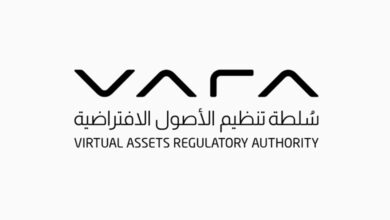UAE Bolsters Anti-Money Laundering Efforts with New Directive on High-Risk Jurisdictions

The National Anti-Money Laundering and Combatting Financing of Terrorism and Financing of Illegal Organizations Committee has issued Decision No. (6) of 2025, marking a significant step in the United Arab Emirates’ (UAE) ongoing efforts to combat financial crime. The directive, dated June 16, 2025, primarily focuses on updating the list of jurisdictions under increased monitoring and high-risk jurisdictions subject to a call for action.
The decision mandates enhanced measures for financial institutions and related entities, underscoring the UAE’s commitment to aligning with international standards set by bodies like the Financial Action Task Force (FATF).
Key Directives and Requirements
The Committee’s decision is rooted in existing legal frameworks, specifically Article (12/3) of Federal Decree Law No. (20) of 2018 (as amended by Federal Decree (26) of 2021) and Article (22) of Cabinet Decision No. (10) of 2019 (as amended by Cabinet Resolution No. (24) of 2022). These articles empower authorities to identify high-risk countries and those with weak Anti-Money Laundering/Combatting Financing of Terrorism (AML/CFT) systems, and to impose appropriate countermeasures.
Under the new directive, all Financial Institutions (FIs), Designated Non-Financial Businesses and Professions (DNFBPs), and Virtual Asset Service Providers (VASPs) in the UAE are required to:
• Regularly verify and review the lists and information issued by the FATF and the National Committee, including any amendments.
• Apply enhanced due diligence measures and countermeasures that are proportionate to the level of risk, especially when dealing with high-risk jurisdictions or those with identified weaknesses in AML/CFT systems.
• Reassess the application of due diligence measures for countries removed from these lists by FATF.
• Regularly review the FATF Gray List and incorporate identified weaknesses into their risk-based compliance measures. Due diligence measures must always be proportionate to risks from business relationships and transactions with individuals or entities from such jurisdictions and effectively mitigate these risks.
Specific Measures for Jurisdictions on the Blacklist
For jurisdictions identified on the “Blacklist,” the decision outlines more stringent requirements:
• Enhanced Due Diligence Measures: FIs, DNFBPs, and VASPs must apply enhanced due diligence to all business relationships and transactions involving blacklisted jurisdictions, including those with natural persons, legal entities, and their representatives.
• Prohibition on Establishing Branches or Representative Offices: Supervisory authorities are mandated to prohibit entities under their supervision from establishing branches or representative offices in blacklisted jurisdictions.
• Internal Reporting and Suspicious Transaction Reporting (STRs): All FIs, DNFBPs, and VASPs must comply with internal reporting mechanisms for monitoring activities related to blacklisted jurisdictions. They are also required to submit STRs to the Financial Intelligence Unit (FIU) using the existing GoAML templates for “High-Risk Jurisdiction” and “High-Risk Jurisdiction Activity” reports, as necessary.
• Increased Monitoring and Supervisory Examinations: All supervisory authorities in the UAE shall impose heightened monitoring and conduct enhanced supervisory examinations on financial groups that have branches and subsidiaries operating in blacklisted jurisdictions.
• Prohibition on Third-Party Reliance: FIs, DNFBPs, and VASPs are prohibited from relying on third parties located in blacklisted jurisdictions to perform customer due diligence procedures.
• Compliance with Targeted Financial Sanctions (TFS): Regulatory authorities must remind all supervised entities, including FIs, DNFBPs, and VASPs, of their obligation to comply with targeted financial sanctions in accordance with United Nations Security Council resolutions and Cabinet Decision No. (74) of 2020. This measure aims to protect the UAE’s financial and non-financial sectors from money laundering, terrorist financing, and the financing of proliferation of weapons of mass destruction.
Enforcement and Legal Consequences
The decision emphasizes strict enforcement. All supervisory authorities in the UAE are directed to take legal action against FIs, DNFBPs, and VASPs, including their directors and senior management, if they fail to implement the measures outlined in this decision.
This decision comes into immediate effect from its date of issuance, and all concerned parties are expected to implement it according to their respective competencies. The National Committee’s website will be updated periodically to reflect any changes or amendments issued by the FATF regarding these jurisdictions.




